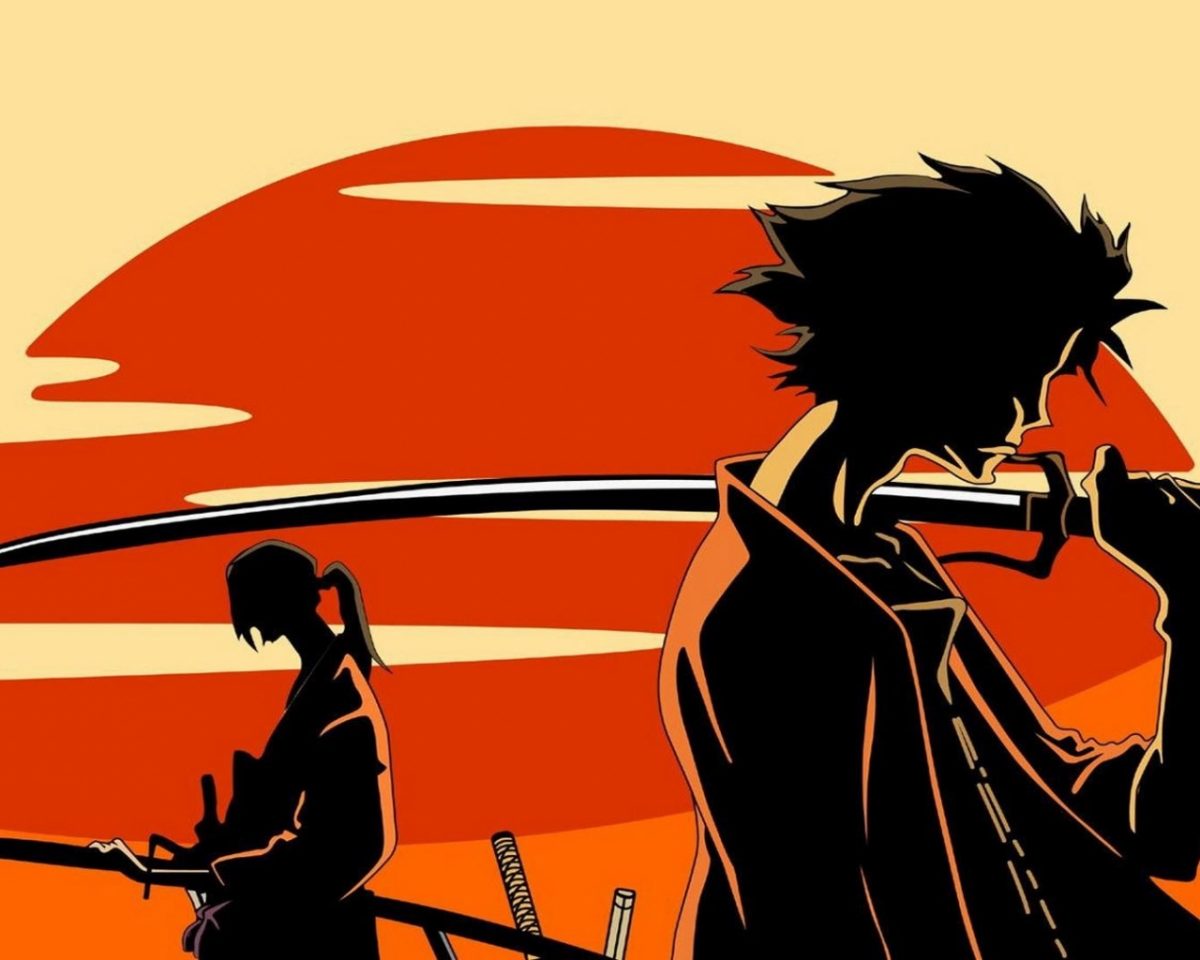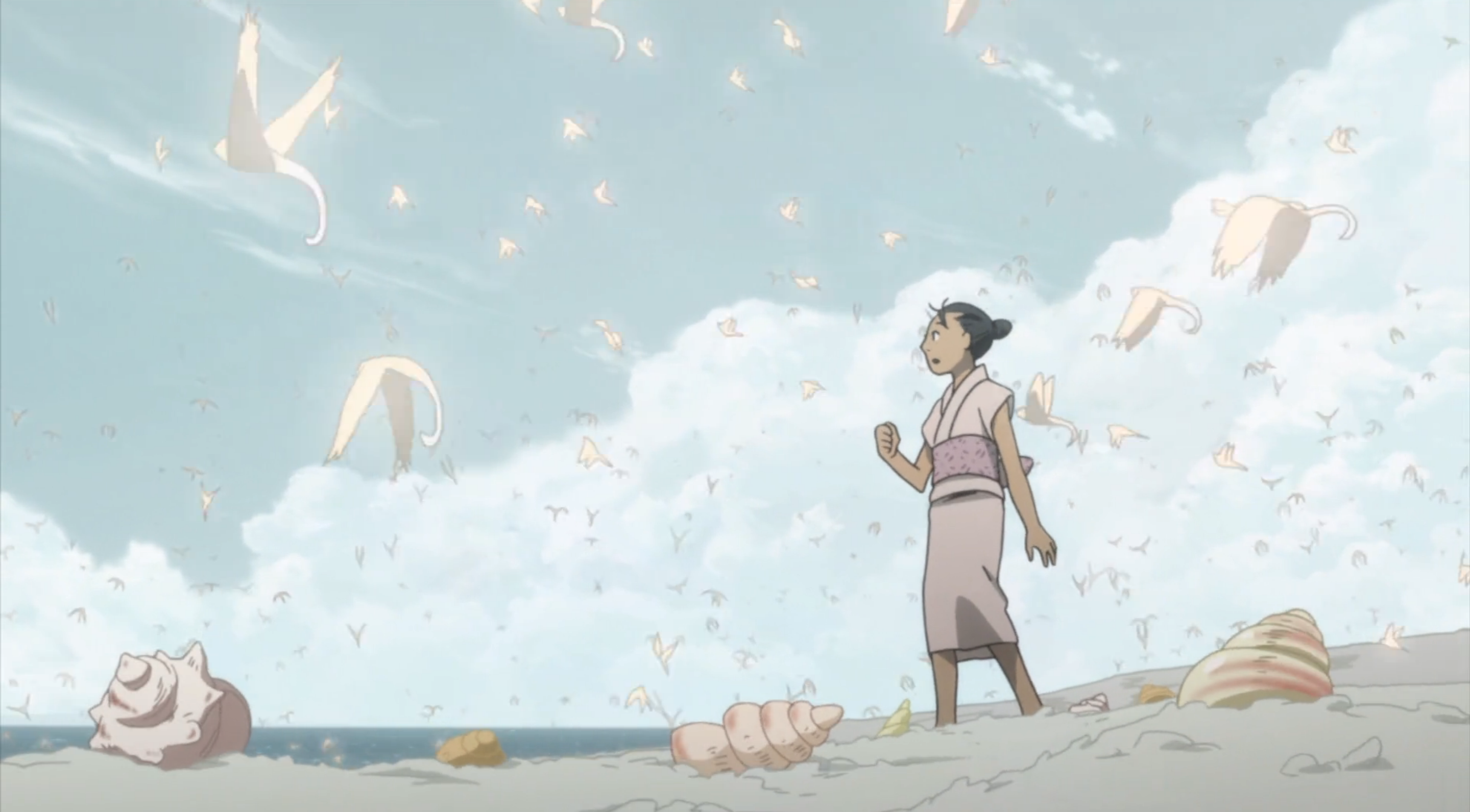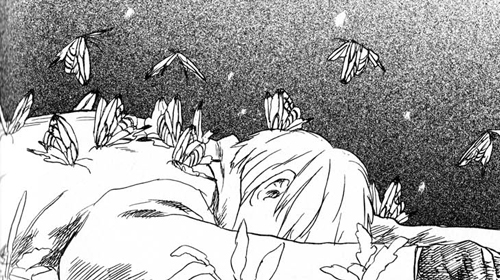As if to confirm its audacious brilliance, central character Ginko hardly even appears in this final episode and it was still one of the highlights of the Mushishi TV series.
Again bursting with its trademark melancholic tone, this was yet another natural blend of touching storytelling that mixes a retrospective and sad human drama with symbolic and vibrant art. An episode that is not so much about achieving an end, but rather growing to accept our roles in life, learning to move on and trust in our friends – an ultimately a positive and beautiful way to send off this most outstanding of series.
I would dearly love to see Mushishi remembered as a landmark anime production, a series that fans of all generations will come to cherish. Minute by minute, episode by episode, it rarely lost my attention. The art, and particularly the beautiful country-side landscapes, were a joy to behold; the lush details and attractive seasonal shades of spring, summer, autumn and winter were all illustrated to great atmospheric effect, allowing the characters and ghosts of Mushishi to grace a stage fit for a dream.
Mushishi is much like watching a dream really, a plain of human imagination where everything has meaning and symbolism, but often sparkles with an odd flourish of unbelievable supernatural vision. The mushi look like faded ghosts, mysterious apparitions wandering, shuddering, gliding through the world bent on purposes we never truly understand. Ginko is by default the “main” character of this series, but like the mushi he hunts, he often wanders through these episodes as a neutral bystander, interfering with characters and using just enough wit to force them into making life changing decisions. Sometimes it ends well, other times it’s quite nasty, but then so is life. If I had one regret about Mushishi, it would be that we still know little to nothing about Ginko. I crave more information about him, how he feels and if he is happy.
We all have our favourites, our guilty pleasures, but this isn’t like that. Mushishi had no faults, it’s not about being a fanboy or obsessing over certain characters, you don’t need to be an anime fan to enjoy Mushishi, it was just a brilliant and magical TV series. A pleasure to watch.


